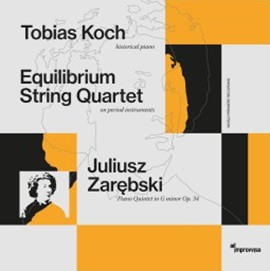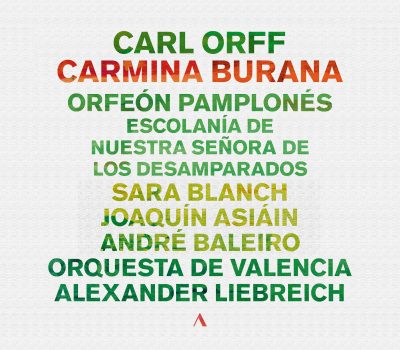Diese Liveaufnahme aus Valencia präsentiert Carl Orffs Carmina Burana in einer fein differenzierten Interpretation, in der Alexander Liebreich die schnellen und rhythmischen Teile gut und mitreißend gestaltet und sie zugleich bedeutungsvoll werden lässt. Bloße Rhythmik, von der andre Interpretationen reichlich haben, ist eben nicht alles! Noch wichtiger scheint mir die Sorgfalt, mit der Liebreich die langsamen Teile aufwertet. Er zögert dabei nicht, einzelne Passagen zu dehnen und erinnert daran, dass die Carmina Burana weltliche Gesänge aus Bayern sind, die gar nicht so viel Schmiss und Glanz haben müssen, als manch anderer Dirigent ihnen verliehen hat.
Liebreich sich offensichtlich die Texte ganz genau angesehen, und er versucht die Musik eben diesen Texten stärker anzupassen, als das sonst der Fall ist. Paavo Järvi hat Ähnliches in seiner Zürcher Aufnahme versucht, aber ist uninspiriert gescheitert. Liebreich erfüllt die langsamen Teile mit gefühltem Leben und gibt den schnelleren den tänzerischen Schwung und den Glanz, den sie verdienen. Und dabei gibt es Akzentuierungen und fein herausgearbeitete Klangtexturen, sowie überraschende Details, die den Klang bereichern und ganz oft absolut köstlich sind.
In diesem Fall leistet auch der Chor wirklich Außergewöhnliches, weil man den Eindruck hat, dass die Sänger den Text genau verstehen und dem gesungenen Wort die Bedeutung geben, den er verdient. Ich höre da viel Spaß, viel Wollust und einen berstenden Drang, gemäß dem Text ‘Das muss ein Armseliger sein, der nicht lebt – und nicht liebt’ oder ‘Die Liebe sorgt für Hochgefühle’. Auch Schmerz gibt es, wie im Dies nox et omnia, das mich selten so berührt hat wie in dieser Aufnahme.
Ein weiterer Höhepunkt ist das transzendierende In Trutina von Sarah Blanch, dem dann ein absolut sinnliches und von sexueller Begier nur so strotzendes Tempus est iocundum folgt, ehe die Rose der Welt üppigst gefeiert wird.
Am Ende weiß man nicht, wen man am meisten loben soll, den Dirigenten, der seine Absichten dem Chor und dem Orchester so überzeugend vermittelt hat, das Orchester, das Liebreichs Dirigat so gut umsetzt oder vor allem dann doch die beiden Chöre sowie die Solisten, die ihre Parts so überzeugt und überzeugend gestalten, wie ich es in den über sechzig Jahren, in denen ich die Carmina Burana immer wieder in unterschiedlichsten Aufführungen gehört habe, noch nie erlebt habe.
This live recording from Valencia offers a finely nuanced interpretation of Carl Orff’s Carmina Burana. Alexander Liebreich shapes the fast and rhythmic sections with great skill and passion, bringing real meaning to the piece. This proves that rhythm alone, which other interpretations have in abundance, is not enough! Even more important, in my opinion, is the care with which Liebreich enhances the slow sections. He does not hesitate to stretch individual passages, reminding us that Carmina Burana are secular songs from Bavaria that do not need to have as much verve and glamour as some other conductors have given them.
Liebreich has clearly studied the lyrics closely and tries to adapt the music to them more than is usually the case. Paavo Järvi attempted something similar in his Zurich recording, but lacked inspiration.
Liebreich fills the slow parts with felt life and gives the faster ones the dance-like verve and brilliance they deserve. And there are accents and finely crafted sound textures, as well as surprising details that enrich the sound and are often absolutely delightful.
In this case, the choir also performs exceptionally well, because one gets the impression that the singers understand the text precisely and give the sung words the meaning they deserve. I hear a lot of fun, a lot of lust, and an overwhelming urge, in keeping with the text: « He must be a poor wretch who does not live- and does not love » or « Love provides feelings of elation. » There is also pain, as in Dies nox et omnia, which has rarely moved me as much as in this recording.
Another highlight is Sarah Blanch’s transcendent In Trutina, followed by an absolutely sensual Tempus est iocundum brimming with sexual desire, before the rose of the world is celebrated in the most lavish manner.
In the end, one does not know whom to praise most: the conductor, who conveyed his intentions so convincingly to the choir and orchestra; the orchestra, which follows Liebreich’s conducting so well, or above all the two choirs and the soloists, who perform their parts so convincingly and persuasively in a way I have never experienced before in the more than sixty years that I have heard Carmina Burana repeatedly in a wide variety of performances.























